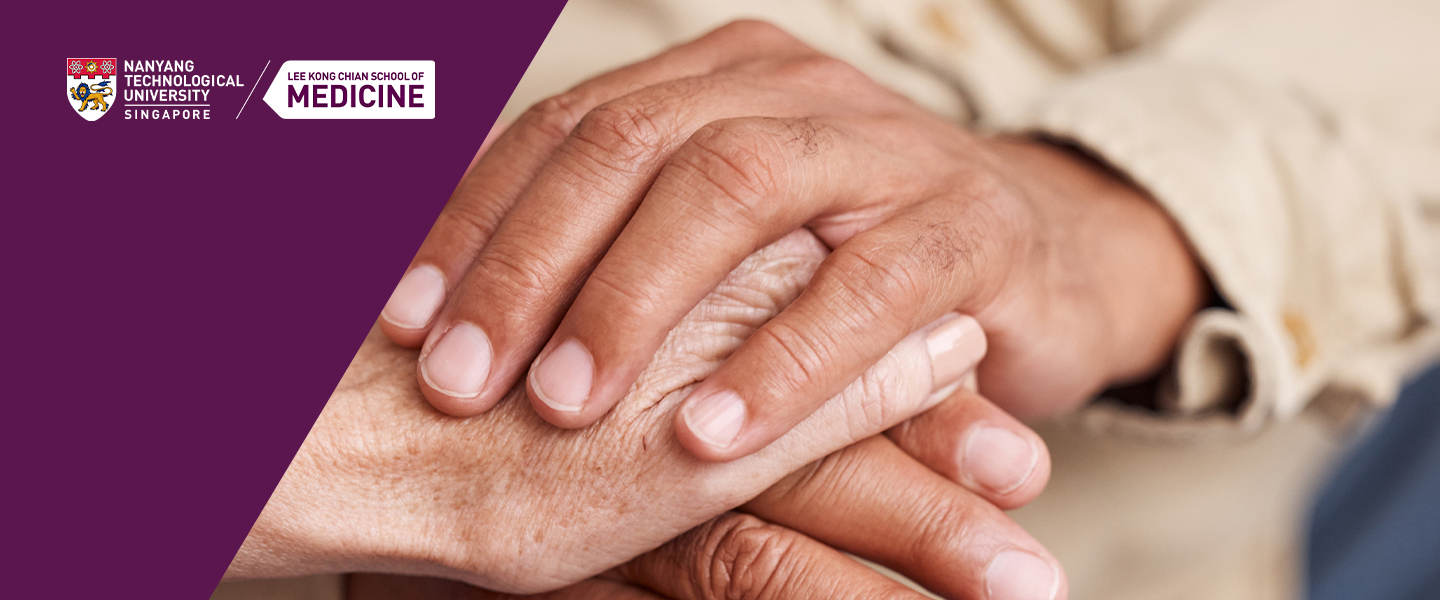Curriculum (FlexiMasters)

FlexiMasters is a comprehensive and flexible advanced training program designed to enhance the expertise of healthcare professionals in the field of palliative care. Comprising three key modules—Advanced Palliative Medicine, Advanced Psychosocial Care and Thanatology, and Advanced Palliative Care in Practice—the program delves into the interdisciplinary aspects of caring for patients facing serious life-limiting diseases.
Overview of Curriculum
Summary of course content This module builds on MD6101 Foundations of Palliative Medicine to deepen the learner’s knowledge and provide a more advanced core concepts of the interdisciplinary approach in caring for patients suffering from serious life-limiting diseases, delivered by a team of experts in the field of palliative care. Importantly, this module will emphasize evidence-based practices and explore the impact of systems-based policies and practice guidelines which shaped clinical care. The following topics will be covered in greater depth with the following areas covered: 1. Overview of life-limiting diseases (cancer and non-cancer) and symptoms in the advanced stages 2. Pharmacological and non-pharmacological management for symptoms relief in patients suffering from life-limiting diseases in the advanced stages 3. Multi-modal approach and clinical therapeutics of complex cancer pain management 4. Overview of conditions presenting as palliative emergencies and management strategies |
Rationale for introducing this module This module provides a deeper understanding of the core principles and practice of palliative care. It deepens the learner’s knowledge on key concepts relating to serious life-limiting diseases in both cancer conditions and non-cancer (end stage organ) diseases. It aims to further build on the learner’s core concepts and knowledge to understand the symptom burden faced by patients suffering from life-limiting diseases and its’ management strategies. It also provides deeper insight into palliative care emergencies as well as the multi-modal approach and clinical therapeutics involved in complex cancer pain management. This course aims to bring healthcare professionals from diverse backgrounds to learn together in an inter-professional and multi-disciplinary environment. |
Aims and objectives On completion of the module, the learners should be able: 1. To understand the holistic assessment and management of symptoms which patients suffering from advanced cancer and end-stage organ diseases experienced, taking into account the physical, physiological, social and spiritual dimensions of care 2. To understand the multi-modal approach in the pharmacological and non-pharmacological management for symptoms relief in patients suffering from advanced life-limiting diseases 3. To understand the multi-modal assessment, management and clinical therapeutics of complex cancer pain management 4. To recognize conditions presenting as palliative emergencies and understand the management strategies 5. To appraise critically palliative care literature in research, ethics and appreciate the impact of evidence-based practice, systems-based policies and practice guidelines which shaped clinical practice 6. To develop self-evaluation and critical reflective skills and to incorporate the knowledge into your own professional practice 7. To formulate a plan in the management of patients suffering with life-limiting diseases, incorporating suggestions from the inter-disciplinary and multi-disciplinary team |
Summary of course content |
Rationale for introducing this module |
Aims and objectives
By the end of this course, students should be able to: 1. Discuss the most advanced knowledge on death, dying and bereavement as well as issues concerning dignity, compassion, and spirituality. 2. Analyse the overarching psychological, social, and cultural impact of death and loss with a particular focused on the Singaporean experience. 3. Explain the impact of grief and bereavement through the lens of thanatology, psychology, sociology, social work and counselling science. 4. Apply advanced practical-skills for working with individuals, families and communities facing the challenges of death, dying, grief and bereavement. 5. Develop deep reflective practices on personal beliefs, attitudes and experiences with death and loss through the principles of self-care, self-compassion, and sustainable resilience. |
Summary of course content Building on MD6103 Foundations of Palliative Care in Practice, this module explores practical care issues and its implications in greater depth: - Principles and ethics in palliative care - Care of the dying patient - Provision of care in various settings (eg. nursing home, community hospital, home) - Communication in palliative care - Meeting patients' nutritional needs - Role of physical, occupational, art, music, and speech rehabilitation - Nursing care in the dependent patient, care of wounds at the end-of-life, and drug administration in palliative care |
Rationale for introducing this module Going beyond basic application of care covered in the HoPE certificate, this module builds on the interdisciplinary approach to care across the spectrum of life limiting disease, including at the terminal phase of a patient’s life. Non-pharmacological and pharmacological approaches to care will be covered in greater depth with regards to medical, nursing and rehabilitative applications with consideration of its’ adaptation across different healthcare settings, including the patient’s home. HoPE diploma candidates will be exploring care of patients with greater complexity of needs and issues, formulating management plans taking into account ethical principles and goals of care. |
Aims and objectives 1. Apply the principles and philosophies of palliative care 2. Discuss the concept of quality of life across the spectrum of living with life limiting disease, including at the terminal phase 3. Integrate disease modifying and palliative care 4. Analyze the implications of ethical issues in palliative care 5. Discuss palliative care in various healthcare settings, its’ applications and limitations 6. Reflect on the techniques and effect of therapeutic communications affecting the well-being and patients and practitioners 7. Discuss the benefits of rehabilitation in palliative care 8. Discuss and appreciate the benefits of interdisciplinary care for patients 9. Synthesize and plan management of care of patients |
- Mid-semester assessment and a final exam for each module
- Student would need to pass all modules to be awarded the certificate / degree from each sub-programme
